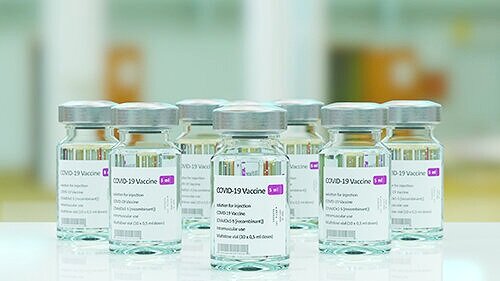We’re celebrating the 2nd Anniversary of the launch of From Breakthrough to Blockbuster: The Business of Biotechnology by Oxford University Press!
Now in its Third Printing, this Financial Times Top Business Title has become one of Oxford’s best-selling books on the business of science!
We’re thrilled to see how many of our readers have visited our book website: over 25,000 visits from 100 different countries.
Download The FREE Instructor Guide (NEW), designed for educators, executives, and readers wanting a deeper dive.
From Breakthrough to Blockbuster: The Business of Biotechnology (Oxford University Press, 2022) is an essential resource for students, scientists, investors, entrepreneurs, physicians, policy makers, and all others interested in how new medicines come into being, why the process is so breathtakingly expensive, and how small entrepreneurial ventures can compete in one of the world’s most expensive and heavily regulated industries. Beyond that, the account of how a vast collection of inexperienced, underfunded, and unprofitable small companies have created more life-changing new medicines than the largest global pharmaceutical firms is a David-and-Goliath story well worth reading.
Learn More About the Book Download the Media Kit Contact the Publicist Free Instructor Guide
Recent Media
-
Current market trends have put investors in a “flight-to-safety” mentality, especially when it comes to biotech companies. What does this mean for getting biotech innovations to the marketplace? This episode of I Am Bio explores the daunting challenge of raising capital in a bear market. Featuring Dr. Lisa Drakeman. (26 minutes)
-
Dr. Don Drakeman talks to Princeton University alumni about how the development of the mRNA COVID vaccines exemplify the willingness of biotech companies to take risks that pay off. "It's about how innovation happens when the experts think it's too risky." (4 minutes)
-
Venture investor and former biotech executive Dr. Don Drakeman speaks with The Bio Report about why the R&D productivity for biotechs is greater than for large pharmaceutical companies with regards to producing innovative therapies, how decentralized decision-making can produce greater innovation, and lessons from COVID-19. (25 Minutes)
-
How have smaller, more nimble biotech startups ridden the wave of VC money to create more innovative treatments than the more resourced Big Pharma? Professor Aris Oraiopoulos co-wrote the book Breakthrough to Blockbuster looking at exactly this question. He is joined by Karl Bergman a Cambridge MBA alum who is now a biotech entrepreneur. (47 minutes)
-
Award-winning entrepreneur Dr. Lisa Drakeman speaks with Princeton University alumni about the top traits of a successful entrepreneur, and shares some of her own anecdotes about facing challenges while building her company. (6 minutes)
-
Drs. Don and Lisa Drakeman talk about how to grow your business and navigate a complex regulatory landscape. Featuring legal insight from Rob Wanerman of Epstein Becker Green. (30 minutes)
Reviews
Special Offer for Investors and Companies Holding Annual Meetings
Special pricing is available to life science investors and companies interested in offering From Breakthrough to Blockbuster: The Business of Biotechnology at their annual meetings. The book is written to be accessible to non-experts and can help your investors understand:
The essential role of life science investors in making the biotech industry the most effective and efficient way to create life-changing new medicines
The expensive, time-consuming, and highly regulated bench-to-bedside biomedical R&D process
Why continual investment in the biotech industry is critical for the future of medical research
Excerpts from the Book
-

How Have Monoclonal Antibodies Transformed Medicine?
“Monoclonal antibody” may be a new phrase to many, but these clever disease targeting biologics have been part of medical treatments for decades. In fact, our research shows that monoclonal antibodies comprise the vast majority of FDA approved biologics to date, with sales of $157.3 billion in 2018.
-

Do You Have the Skills to Succeed as a Biotech Entrepreneur?
We have developed a set of questions to help people consider whether they might find a career in biotechnology entrepreneurship fulfilling and a good match for their personality and inclinations.
-

Did You Know that Biotech-Pharma Alliances are More Effective When the Biotech Company has Control?
Research demonstrates that alliances are less likely to lead to an FDA-approved drug when the pharma company retains more control of the partnership.
EXCERPT
How GSK Missed a $50 Billion Opportunity with the COVID-19 Vaccine
At the outset of the COVID-19 pandemic, scientists around the world set out to design an effective vaccine as rapidly as possible. No one knew what technological approach would be the most successful. The goal was to prompt vaccinated people’s bodies to generate a strong immune response to an essential part of the virus called the “spike protein.” Then, upon exposure to the virus, the immune response would neutralize or eliminate it before the infection could set in. The key question was how to get the spike protein in the body in a way that would lead to a rapid and effective immune response.
No one was better positioned to answer that question than GlaxoSmithKline (GSK), the world’s leader in vaccines. With over $8 billion in vaccine sales, GSK had opened a dedicated global vaccines research center just a few years before. In those new labs, GSK researchers had been working with a promising new vaccine technology called mRNA. With that approach, they could potentially deliver the genetic code for the spike protein directly to the patients’ cells. To get the resources to work on an mRNA-based COVID vaccine, the researchers, following the standard approach common to many pharmaceutical companies, presented the idea to the series of GSK committees that needed to approve research programs. After the proposal finally found its way to senior management, it was rejected on the grounds that mRNA technology was not “ready for prime time.”
“The biotech industry has been able to create more high priority, pathbreaking medicines with less experience and far fewer resources than the pharmaceutical industry.”
At the same time, two small biotech companies set out to design mRNA COVID vaccines. Later recounting that it took one of them an afternoon, and the other just two days, the biotech companies pressed forward with the unproven technology. One of them, Moderna, developed the product on its own, while the other, BioNTech, partnered its vaccine with Pfizer for on-going development.
Eventually, the Moderna and BioNTech/Pfizer vaccines were authorized for sale in many countries, and became the leading COVID vaccines. Analysts projected total 2021 sales of over $13 billion for the Moderna vaccine, and over $19 billion for the BioNTech/Pfizer vaccine. Their willingness to bet on an unproven, potentially not-ready-for-prime-time technology propelled them well past GSK, which would no longer be the #1 vaccine company.
This story illustrates many of the themes of chapter 7. Biotech and pharmaceutical companies frequently have access to the same technologies and are working on the same diseases. But there are very significant differences in how decisions are made to allocate resources to the various research programs, leading to different levels of tolerance for risk. Those differences can help explain why the biotech industry has been able to create more high priority, pathbreaking medicines with less experience and far fewer resources than the pharmaceutical industry.
Read More Great Content from The Business of Biotechnology
This is an article that has been published by Oxford University Press in the book From Breakthrough to Blockbuster: The Business of Biotechnology by Donald Drakeman, Lisa Drakeman, and Nektarios Oraiopoulos, published February 14, 2022.



